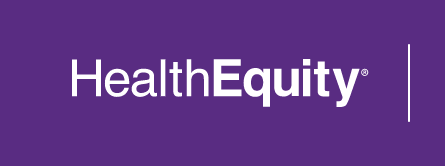This Spring, I hope you take some time to brush up on the latest information coming from the Internal Revenue Service (IRS). While it’s not actually “breaking” news, the IRS recently published FAQs on eligible medical expenses which may be paid or reimbursed under a tax-advantaged health Reimbursement Account plan. These plans include the Health Savings Account (HSA), Health Reimbursement Arrangement (HRA), and Health Flexible Spending Account (FSA). The frequently asked questions (FAQs) also included questions related to dual-purposes items such as nutritional supplements or vitamins and their eligibility under these plans. Read on to understand details on coverage by type—from vitamins and supplements to weight management and smoking cessation programs—to stay informed.
What does the IRS define as eligible medical expenses?
As background, Internal Revenue Code § 213(d) defines medical care as “amounts paid for the diagnosis, cure, mitigation, treatment, or prevention of disease, or for the purpose of affecting a structure or function of the body.” The FAQs reiterated that medical expenses must be primarily to alleviate or prevent a physical or mental disability or illness, and do not include expenses that are merely beneficial to general health.
To get specifics on what medical expenses your plan may cover, look at the qualified medical expenses list (QME) with tabs for HSA, FSA, and more. Qualified medical expenses, designated by the IRS, include certain medical, dental, vision and prescription expenses you can pay for with your HSA (or other healthcare savings accounts) funds. Some qualifying expenses include deductibles, co-payments, flu shots, hearing aids, immunizations, physical exams and many more. You can also read more about using an HSA or FSA to pay for dental expenses and vision services.
How does the IRS account for vitamins and supplements?
Many Americans take one or more vitamins or other dietary supplements for general health1. Dietary supplements can contain—in addition to vitamins—minerals, herbs or other botanicals. Dietary supplements come in a variety of forms, including tablets, capsules, gummies, and powders, as well as drinks and energy bars. Popular supplements include vitamins D and B12 and minerals like calcium and iron. While vitamins or dietary supplements are often taken to promote overall general health, a licensed provider must recommend a specific one(s) to treat, cure, or mitigate, a specific medical condition to be considered an eligible expense under a Reimbursement Account plan.
Talking about wellness expenses and coverage
The FAQs also explained medical costs related to wellness. For example, dental, and vision exams are eligible medical expenses, which can be paid or reimbursed from a Reimbursement Account because this type of diagnostic medical care can advise whether a disease or illness is present. Costs associated with treatment programs like smoking cessation and substance abuse prevention are also eligible medical-related costs which can be paid or reimbursed from a Reimbursement Account because these program types are associated with treating a disease.
What the IRS FAQs mention about fitness
Weight-loss management, gym membership, and nutritional counseling may be considered eligible medical expenses, but only if they are recommended or prescribed by a physician. Weight loss management and nutritional counseling must be recommended or prescribed to treat a disease, such as obesity or hypertension. Likewise, therapy must be recommended or prescribed to treat a diagnosed medical illness, such as a mental illness. Lastly, costs related to a gym membership must be shown to alleviate a function of the body such as physician-recommended or prescribed physical therapy to treat an injury.
More about miscellaneous categories
There are several topics that often come up—from reimbursement of food to menstrual care products. Luckily, the guidance provides clarification on many of these areas. For example, the FAQs clarify the limited circumstances under which food and beverages purchased for weight loss, or other health related reasons, may qualify (with a letter of medical necessity) as a medical expense. Please note, for food and beverage expenses, the amount reimbursable is limited to the amount by which the cost of the food or beverage exceeds the cost of a product that satisfies normal nutritional needs.
The IRS FAQs also reiterated the cost of over-the-counter (OTC) drugs and menstrual care products as permissible eligible expenses under a Reimbursement Account plan.
Wrapping up what you need to know
While the FAQs did not provide any new guidance, they did provide helpful reminders for individuals with a Reimbursement Account. Plus, if you are an employer or Reimbursement Account administrator, the FAQs should help you answer questions about these types of expenses, plan allowances, and design. The FAQs also serve as a reminder to Reimbursement Account administrators of the importance of claim substantiation when paying and reimbursing medical claims under a Reimbursement Account plan.
Interested in learning more about how HealthEquity supports employers and members in working toward wellness and financial goals? Reach out to us at 866.855.8908 and we’ll help you find the best strategy available.



